A New Low?
By I. A. Rehman | Newsbeat National | Published 7 years ago
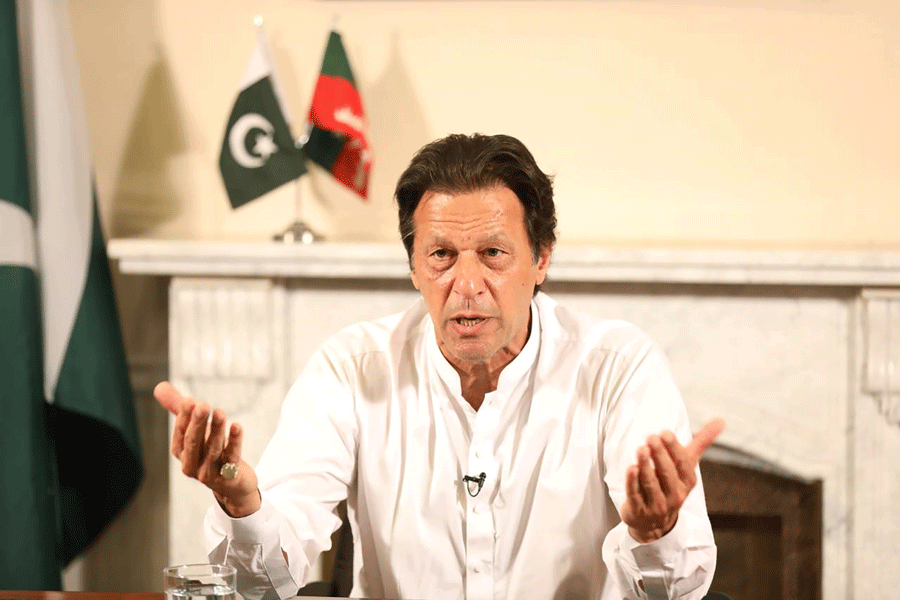
It may not be unfair to describe 2018 as one of the most tumultuous years in Pakistan’s history. The main headlines throughout the past 12 months related to the accountability juggernaut’s march towards demolition of the two mainstream partiesthat had dominated national politics in post-Ziaul Haq Pakistan: the PML-N and the PPP. Before the year ended, PML-N leader Nawaz Sharif, three-time prime minister of the country and two-time chief minister of Punjab, had been sent to jail to serve a seven-year sentence (and pay a huge fine) for acquiring property beyond his means. The noose around the neck of PPP’s virtual head, Asif Ali Zardari, meanwhile, grew tighter and tighter. The coast seemed clear for the powers-that-be to establish a one-party regime with absolute power, as is being alleged.
Before an Accountability Court convicted Nawaz Sharif in the reference relating to Al-Azizia Mills (while acquitting him in the Flagship case) on December 24, he had been in and out of prison and court 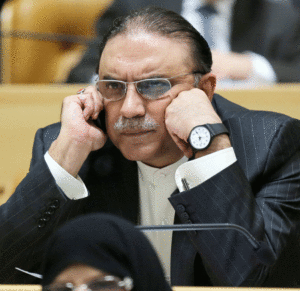 throughout the year. He had been ousted from the prime minister’s office and disqualified for life by the Supreme Court in 2017 and more verdicts against him followed in 2018. In two separate cases, he was held ineligible to continue as PML-N president and the period of his disqualification for public office was confirmed to be lifelong.Serious allegations of election manipulation were made not only by the losing parties and candidates, but also by a number of domestic observers who said the election had been micro-managed by the establishment. In support of their contention, they mentioned considerable defections from PML-N before the polls and the ouster of polling agents from polling stations for an hour before the counting of votes. However, most opposition parties decided to move on and left the charges of unfair election to be probed by a parliamentary committee which is yet to get going.
throughout the year. He had been ousted from the prime minister’s office and disqualified for life by the Supreme Court in 2017 and more verdicts against him followed in 2018. In two separate cases, he was held ineligible to continue as PML-N president and the period of his disqualification for public office was confirmed to be lifelong.Serious allegations of election manipulation were made not only by the losing parties and candidates, but also by a number of domestic observers who said the election had been micro-managed by the establishment. In support of their contention, they mentioned considerable defections from PML-N before the polls and the ouster of polling agents from polling stations for an hour before the counting of votes. However, most opposition parties decided to move on and left the charges of unfair election to be probed by a parliamentary committee which is yet to get going.
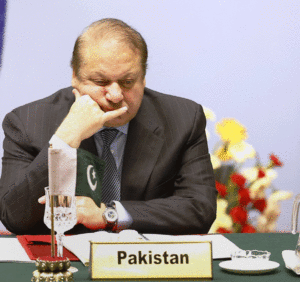 The new government certainly inherited a state facing grim challenges. The economy had been going downhill throughout the final years of the PML-N government and it had been trying to curtail the damage without going to the IMF for a bailout. The new government decided to open negotiations with the IMF within its first fortnight in office. It received considerable relief in the form of cash deposits and oil supplies on credit from Saudi Arabia and UAE. China also joined the relief effort. However, talks with the IMF will continue in the new year. The government is trying to meet the Fund’s main conditions before an agreement is signed, by allowing devaluation of the rupee, increasing the cost of utilities and levying fresh taxes. A new mini budget is also said to be on the anvil. As a result, the cost of living has shot up by a significant margin and sizeable parts of the lower middle class have been impoverished.
The new government certainly inherited a state facing grim challenges. The economy had been going downhill throughout the final years of the PML-N government and it had been trying to curtail the damage without going to the IMF for a bailout. The new government decided to open negotiations with the IMF within its first fortnight in office. It received considerable relief in the form of cash deposits and oil supplies on credit from Saudi Arabia and UAE. China also joined the relief effort. However, talks with the IMF will continue in the new year. The government is trying to meet the Fund’s main conditions before an agreement is signed, by allowing devaluation of the rupee, increasing the cost of utilities and levying fresh taxes. A new mini budget is also said to be on the anvil. As a result, the cost of living has shot up by a significant margin and sizeable parts of the lower middle class have been impoverished.
The year 2018 also marked an unprecedented increase in judicial activism. The superior judiciary not only went for the corrupt with missionary zeal, it expanded its right to intervene wherever anyone was not doing his job according to the law. Irregular and out-of-turn appointments were set aside, unlawful encroachments made in cities and towns over the past 50 years or more were pulled down, matters related to supply of bottled water for drinking and failure to remove mountains of garbage from streets in the largest metropolis were sought to be settled. The CJP and his band of judges worked on holidays and welcomed all citizens who had any grievance, at the Supreme Court registries. Above all, the CJP undertook to mobilise the people and collect donations for building hydroelectric dams on the Indus to protect the country’s long-term economic interests. There was no indication of the administration’s embarrassment at seeing its work being done by the judiciary. The question of whether the apex court should assume administrative functions instead of ensuring that all functionaries did their job remained unanswered.
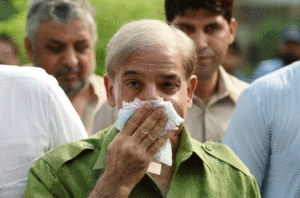 For the media, 2018 was the worst year in Pakistan’s history. Soon after the campaigns for the general election, that had helped both newspapers and electronic
For the media, 2018 was the worst year in Pakistan’s history. Soon after the campaigns for the general election, that had helped both newspapers and electronic 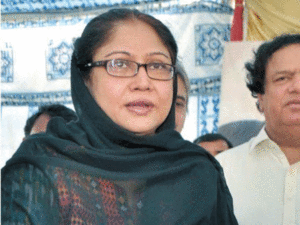 channels to make windfall gains were over, the entire media was hit by a disastrous slump. A sharp fall in revenues forced lay-offs in both the print and electronic media. A leading media house closed down five of its publications and sacked about 500 employees. All newspapers were obliged to reduce their sizes and raise prices. In the last week of the year, the government dealt the TV channels a near fatal blow by proposing cuts in the rates of payment for official advertisements by a huge margin. A channel that used to be paid Rs 210,000 for 60 seconds was told to be content with Rs 55,000 and the rate was cut down from Rs 175,000 to Rs 5,000 for another channel.
channels to make windfall gains were over, the entire media was hit by a disastrous slump. A sharp fall in revenues forced lay-offs in both the print and electronic media. A leading media house closed down five of its publications and sacked about 500 employees. All newspapers were obliged to reduce their sizes and raise prices. In the last week of the year, the government dealt the TV channels a near fatal blow by proposing cuts in the rates of payment for official advertisements by a huge margin. A channel that used to be paid Rs 210,000 for 60 seconds was told to be content with Rs 55,000 and the rate was cut down from Rs 175,000 to Rs 5,000 for another channel.
In addition to the economic squeeze, the space for freedom of expression – dissent in particular – shrank significantly. The unpopular cyber crime law was used to detain several bloggers. Above all, the government revealed its plan to make a new law for print, electronic and digital media – one that would bring it under the government’s stringent control.
It was a particularly bad year for non-government organisations. Many international NGOs with long records of service to the people of Pakistan were arbitrarily told to pack up and leave. The fate of national civil society organisations was placed at the tender mercy of security services, in violation of international humanitarian practice and with utter disregard for the valuable work these organisations had done.
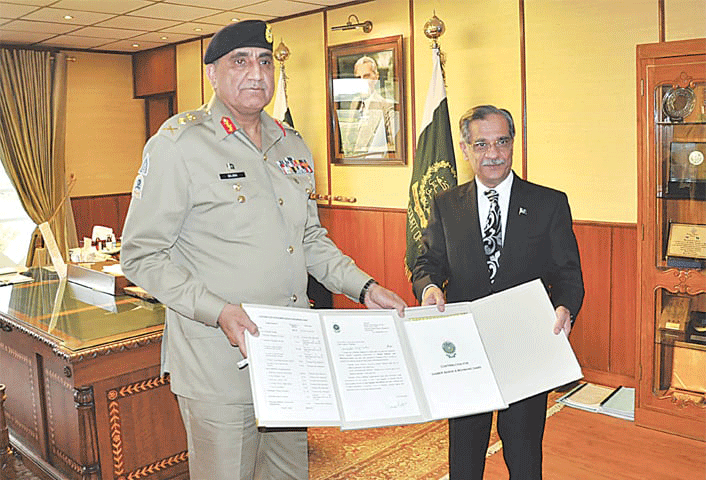
Human rights continued to be violated throughout the year by state and non-state actors. Cases of sexual abuse of small girls briefly pricked the community’s conscience but not for long. The government was not embarrassed that after the Universal Periodic Review that concluded in February 2018, the recommendations made to Pakistan for improving its human rights record had jumped to 289, from 167 in 2012 and 51 in 2008. A large number of people waited in vain for the return of forcibly disappeared relatives.
Towards the close of the year, photographs of the chained corpse of a NAB victim (regardless of the charge-sheet against him) and of women protesting in the open against enforced disappearances on a cold wintry night in Quetta, constituted definitive statements about the state of human rights in the country.
Mr. I.A. Rehman is a writer and activist living in Pakistan. He is the secretary general of the Human Rights Commission of Pakistan Secretariat.


